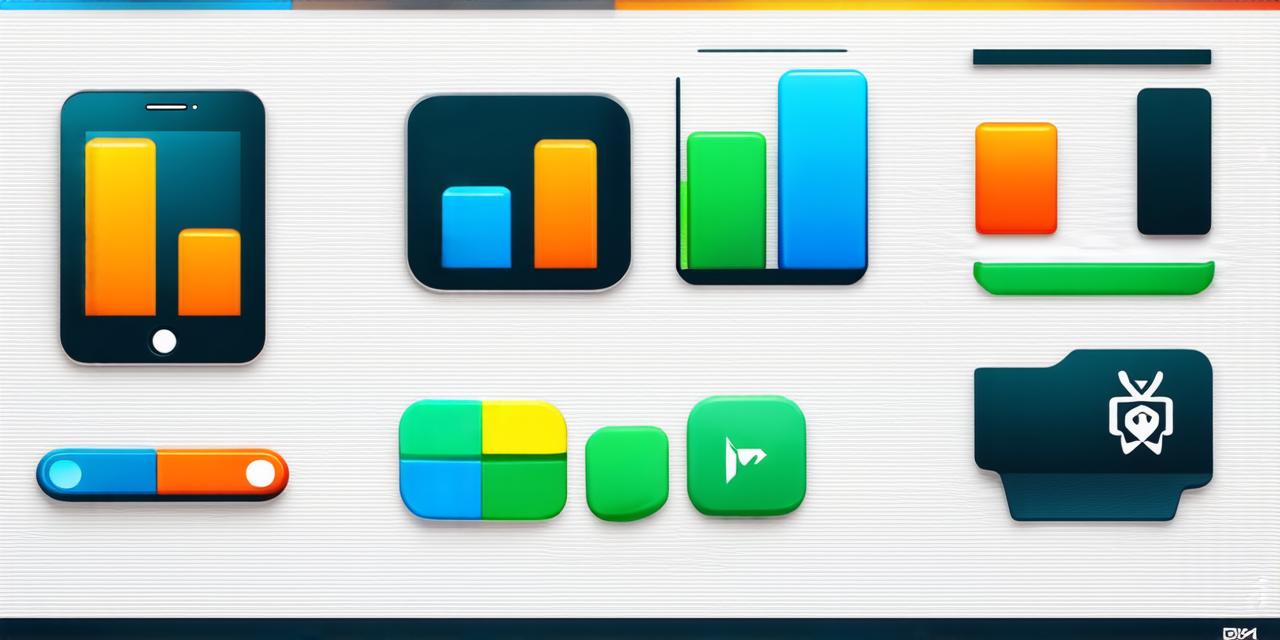Which framework is most suitable for developing Android applications?
1. React Native
React Native is a cross-platform mobile development framework that was first introduced by Facebook in 2015. It allows developers to build native mobile apps using a single codebase, which can save time and resources compared to developing separate apps for each platform.
Some of the notable features of React Native include:
- Cross-platform app development using a single codebase
- Support for both iOS and Android platforms
- Built-in support for Redux and other popular JavaScript libraries
- Use of native components to access platform-specific APIs and features
- Large community and extensive documentation
2. Flutter
Flutter is another open-source cross-platform mobile development framework, introduced by Google in 2017. It uses the Dart programming language as its primary language, which is designed specifically for building user interfaces (UIs) and mobile applications.
Some of the notable features of Flutter include:
- Cross-platform app development using a single codebase
- Support for both iOS and Android platforms
- Built-in support for popular mobile development libraries such as Firebase and Bluetooth Low Energy (BLE)
- Use of customizable widgets to create unique UI designs
- Large community and extensive documentation
3. Xamarin
Xamarin is a cross-platform mobile development framework that allows developers to build native iOS, Android, and Windows apps using C or Visual Basic code. Xamarin was first introduced by Microsoft in 2011 and has since become one of the most popular cross-platform development platforms.
Some of the notable features of Xamarin include:
- Cross-platform app development using a single codebase
- Support for iOS, Android, and Windows platforms
- Built-in support for popular mobile development libraries such as React Native and Angular
- Use of C or Visual Basic code to develop apps
- Large community and extensive documentation
4. Ionic
Ionic is a cross-platform mobile development framework that allows developers to build native iOS, Android, and web applications using HTML5, CSS, and JavaScript code. Ionic was first introduced by Apache in 2013 and has since become one of the most popular cross-platform development platforms for building hybrid apps.
Some of the notable features of Ionic include:
- Cross-platform app development using a single codebase
- Support for iOS, Android, and web platforms
- Built-in support for popular mobile development libraries such as Angular and React Native
- Use of HTML5, CSS, and JavaScript code to develop apps
- Large community and extensive documentation
5. NativeScript
NativeScript is a cross-platform mobile development framework that allows developers to build native iOS, Android, and Windows apps using TypeScript, Java, or C code. NativeScript was first introduced by Progress Software in 2014 and has since become one of the most popular cross-platform development platforms for building hybrid apps.
Some of the notable features of NativeScript include:
- Cross-platform app development using a single codebase
- Support for iOS, Android, and Windows platforms
- Built-in support for popular mobile development libraries such as Angular and React Native
- Use of TypeScript, Java, or C code to develop apps
- Large community and extensive documentation
Comparison of Frameworks
When choosing the right framework for your Android app development project, there are several factors to consider. These include ease of use, scalability, performance, and platform-specific requirements. In this section, we will compare the features and benefits of each framework in these areas to help you make an informed decision.
Ease of Use
All of the frameworks discussed in this article are designed to be user-friendly and accessible to developers with varying levels of experience. However, some frameworks may be easier to learn or use than others. For example, React Native uses JavaScript as its primary programming language, making it an accessible option for developers who are familiar with web development frameworks such as Angular or Vue.js.

Scalability
All of the frameworks discussed in this article are scalable and can support large-scale app development projects. However, some frameworks may be better suited for certain types of applications.
Performance
All of the frameworks discussed in this article are designed to provide high performance and responsive user interfaces. However, some frameworks may be better suited for certain types of applications.
Platform-Specific Requirements
All of the frameworks discussed in this article support multiple platforms, including iOS, Android, and web platforms. However, some frameworks may be better suited for certain types of applications or platform-specific requirements.
Conclusion
In conclusion, choosing the right framework for your Android app development project is an important decision that depends on several factors. Each of the frameworks discussed in this article has its own strengths and weaknesses, making it essential to carefully consider your requirements and goals before making a choice. By evaluating the ease of use, scalability, performance, and platform-specific requirements of each framework, you can select the best option for your app development project and ensure that you build a high-quality, responsive, and successful app.
